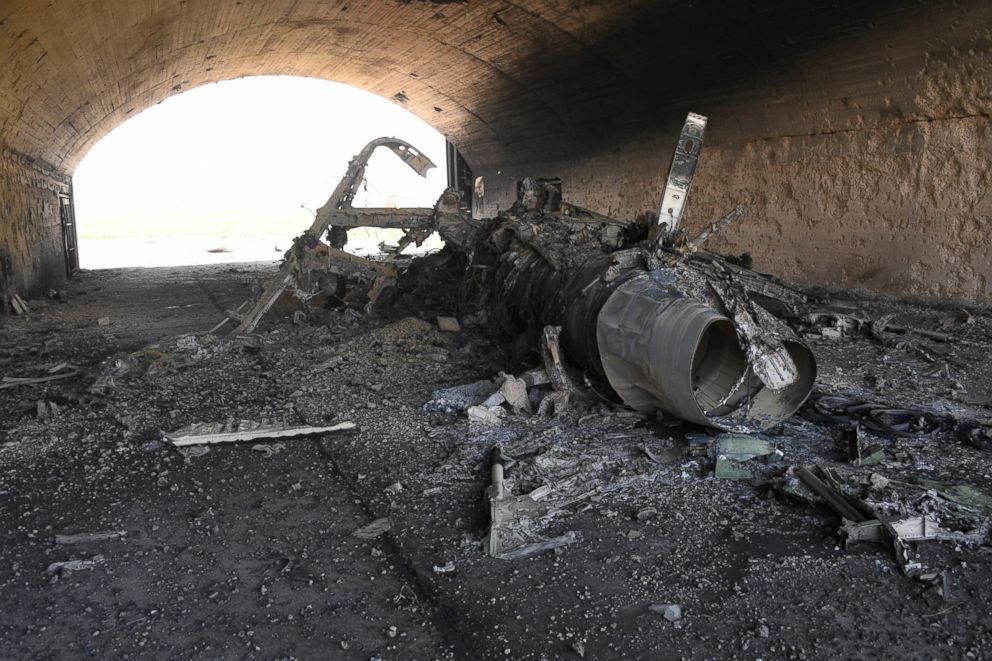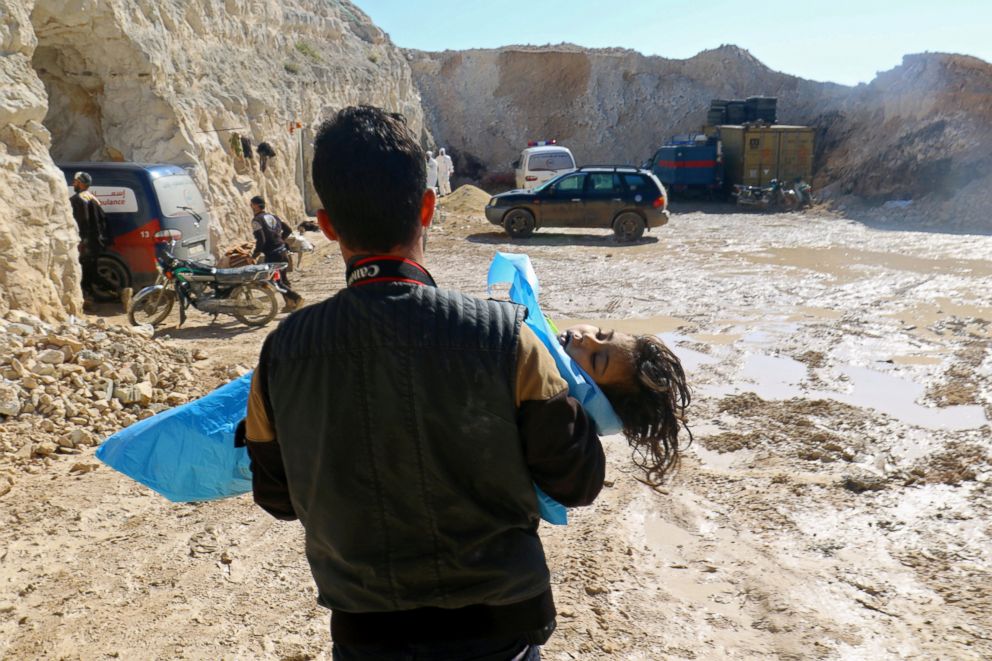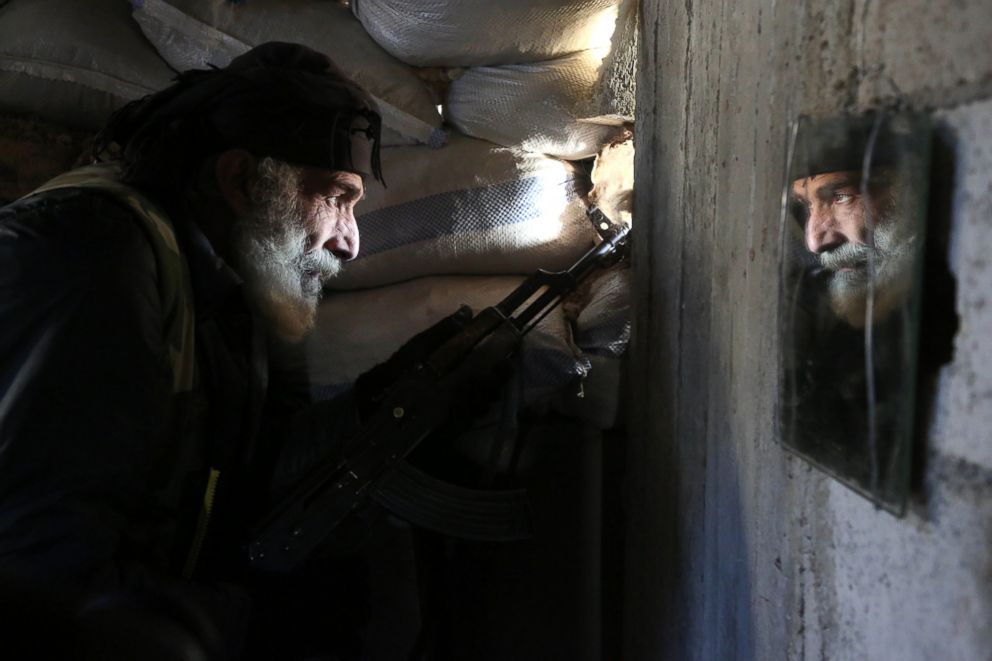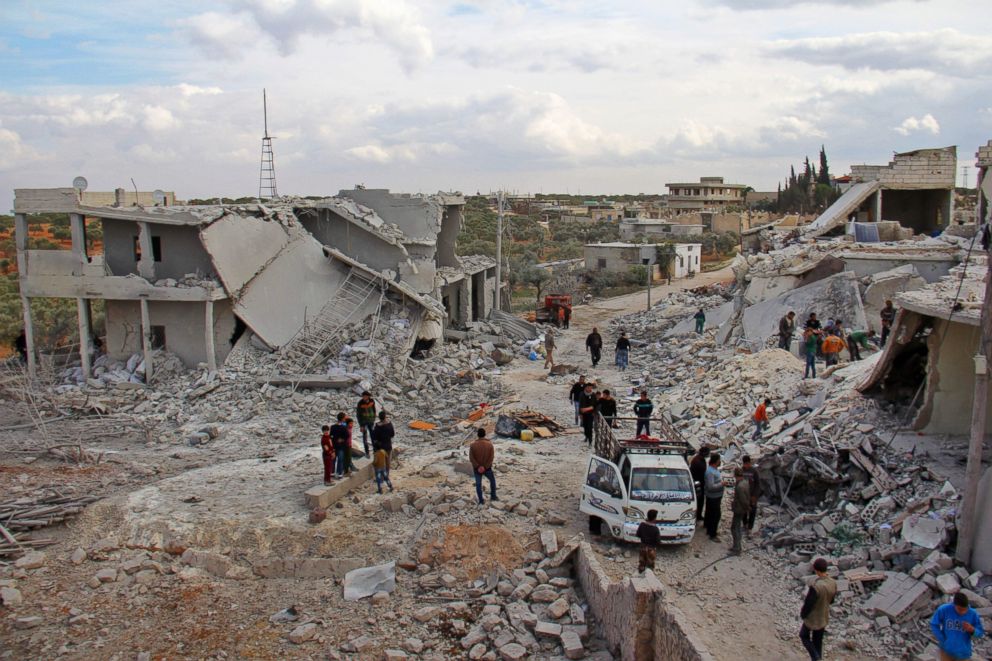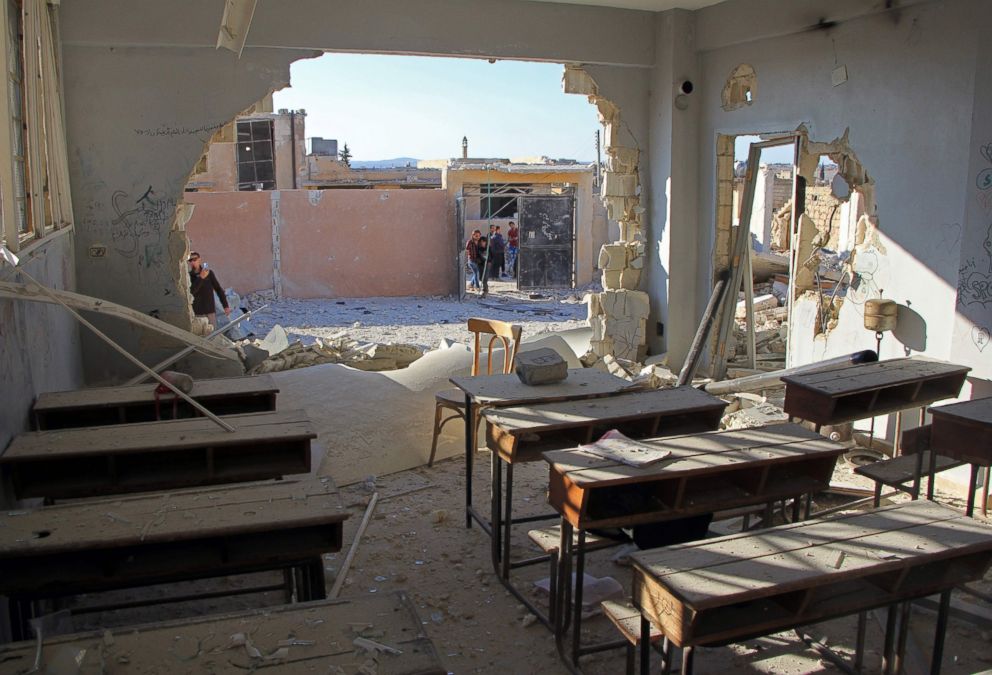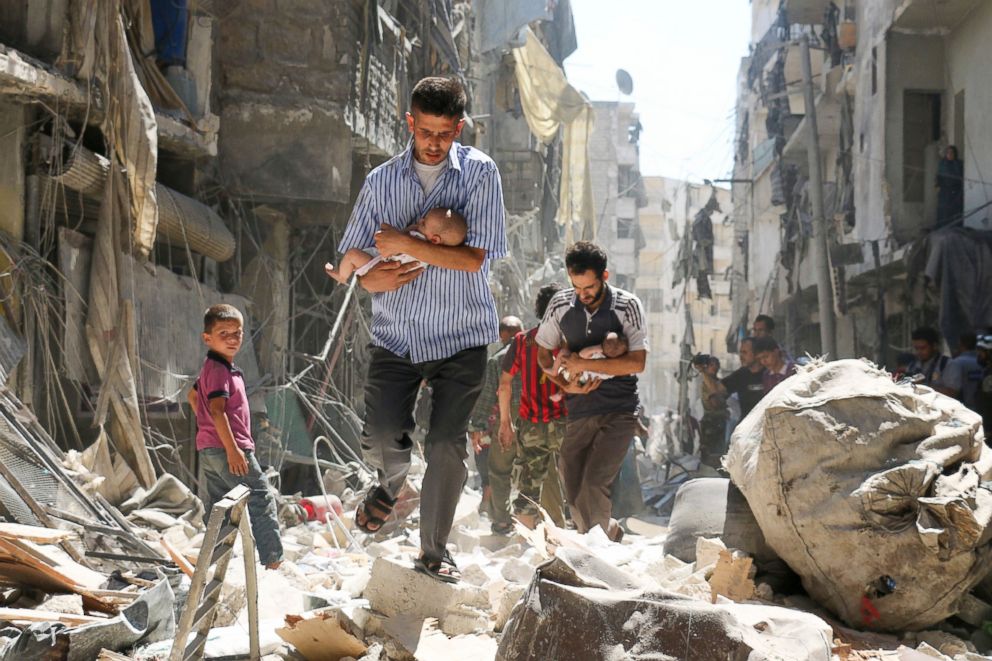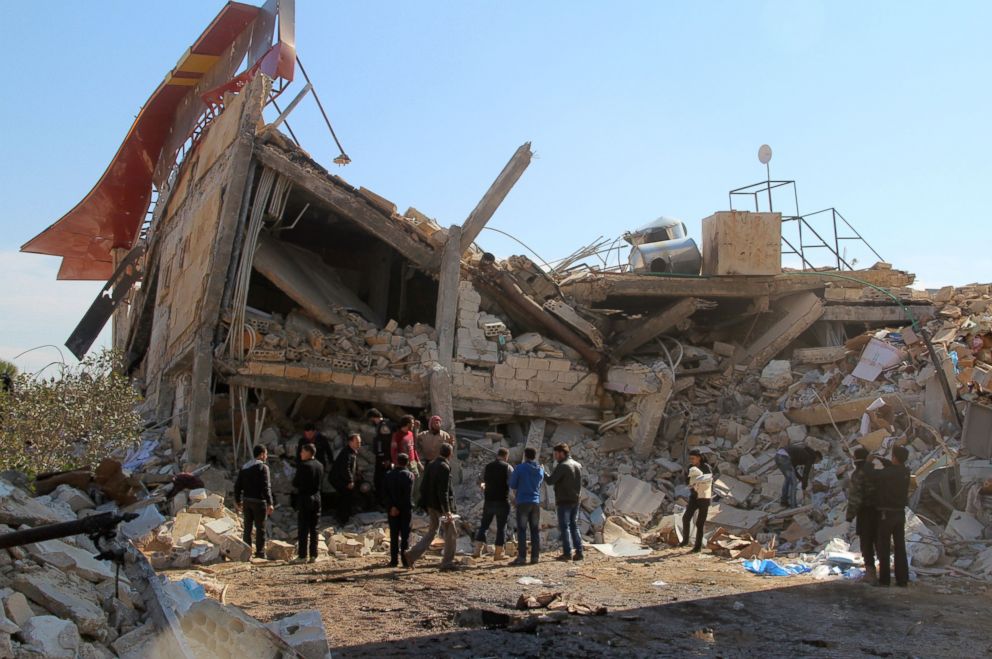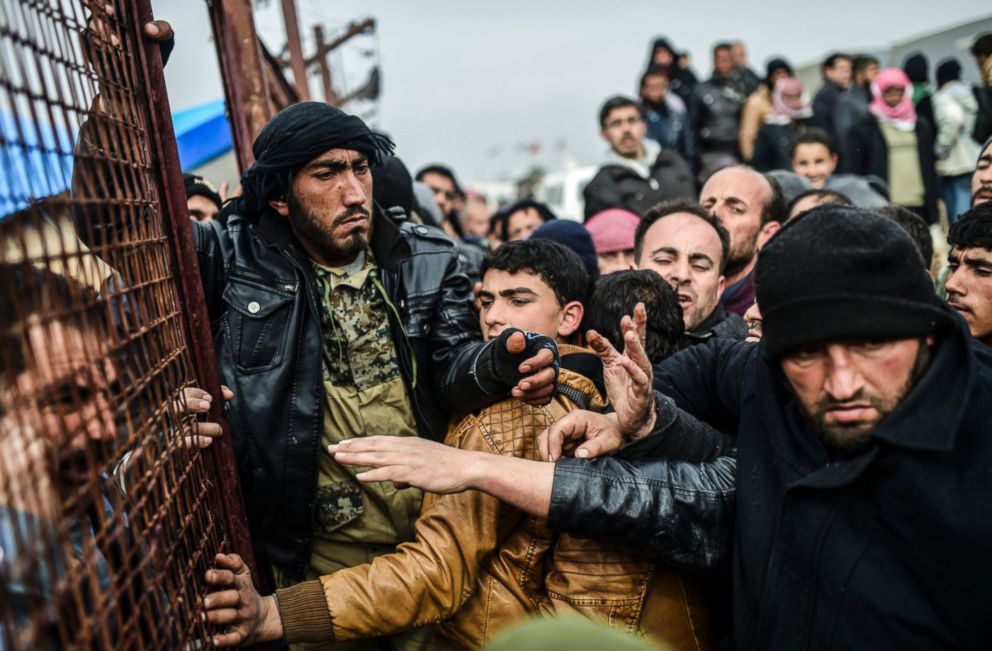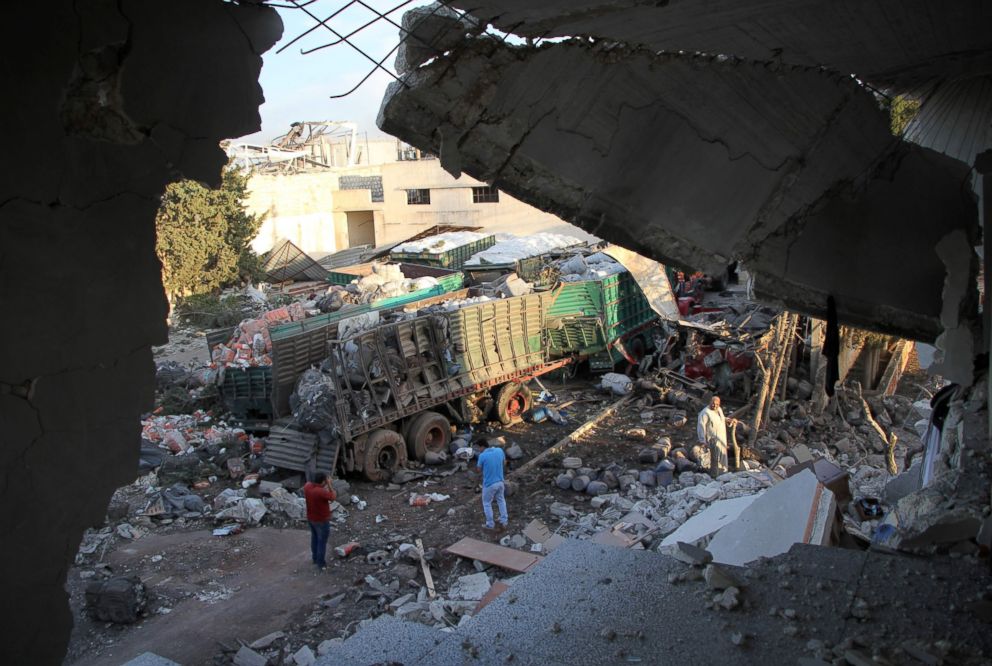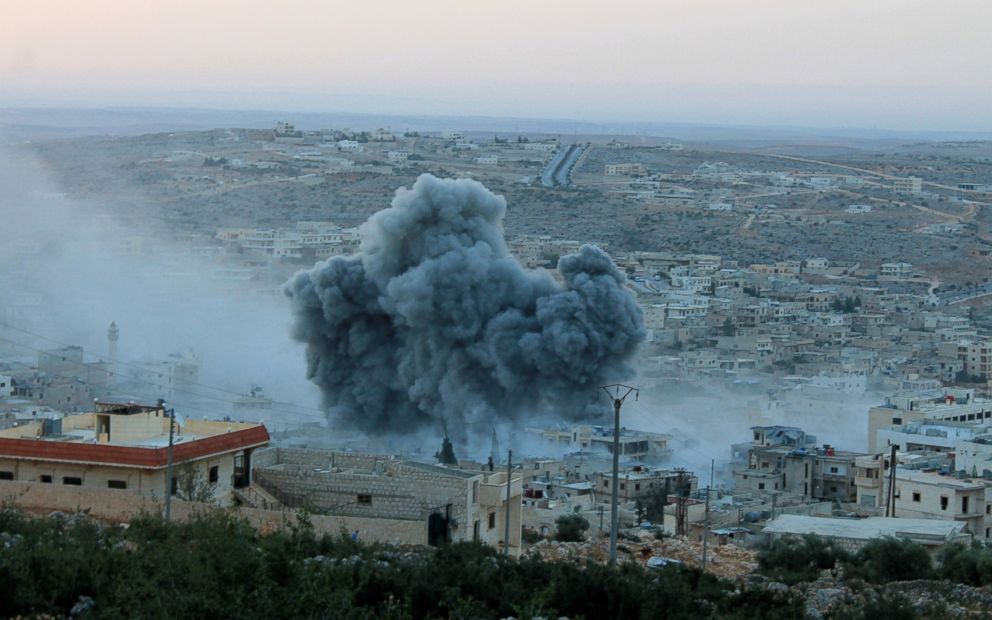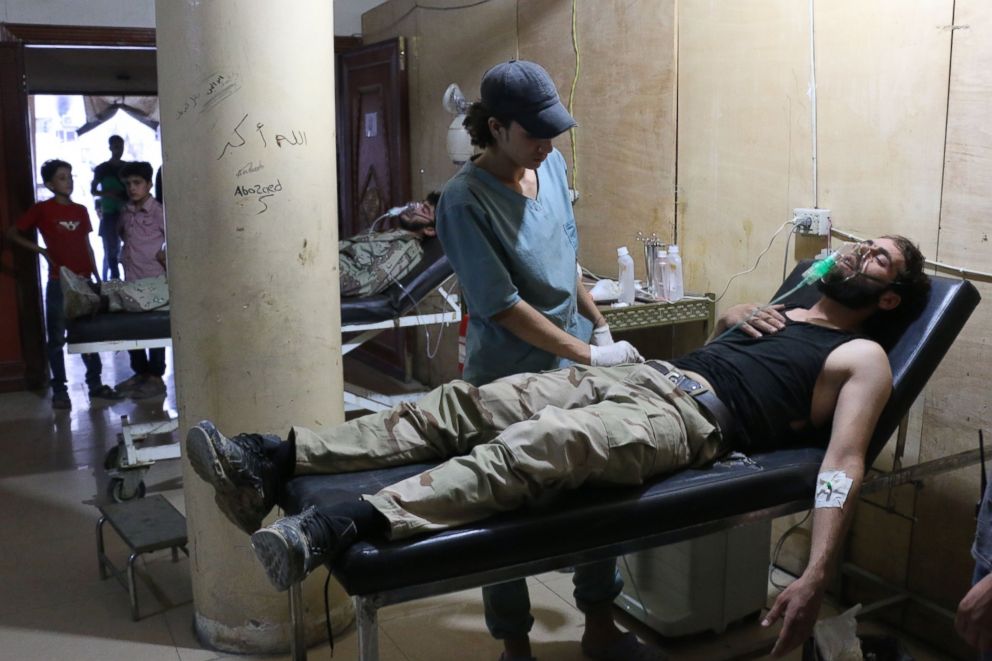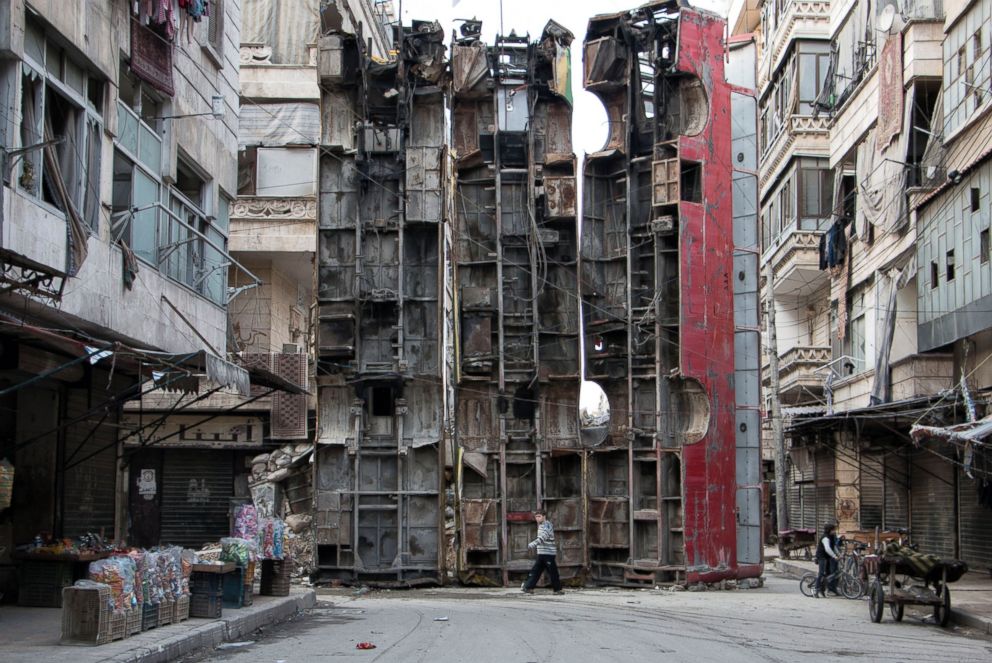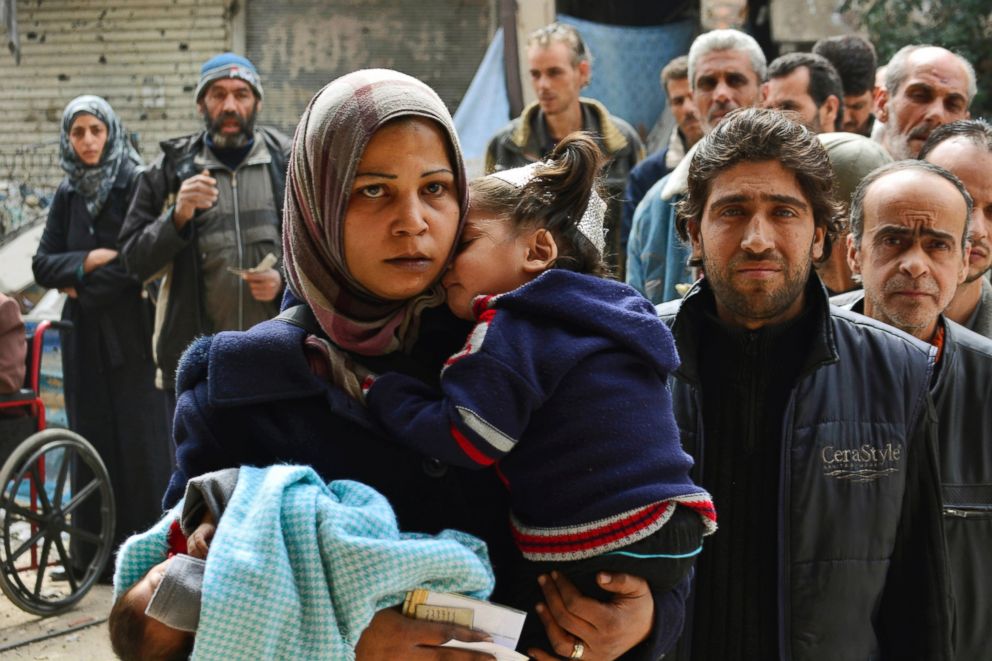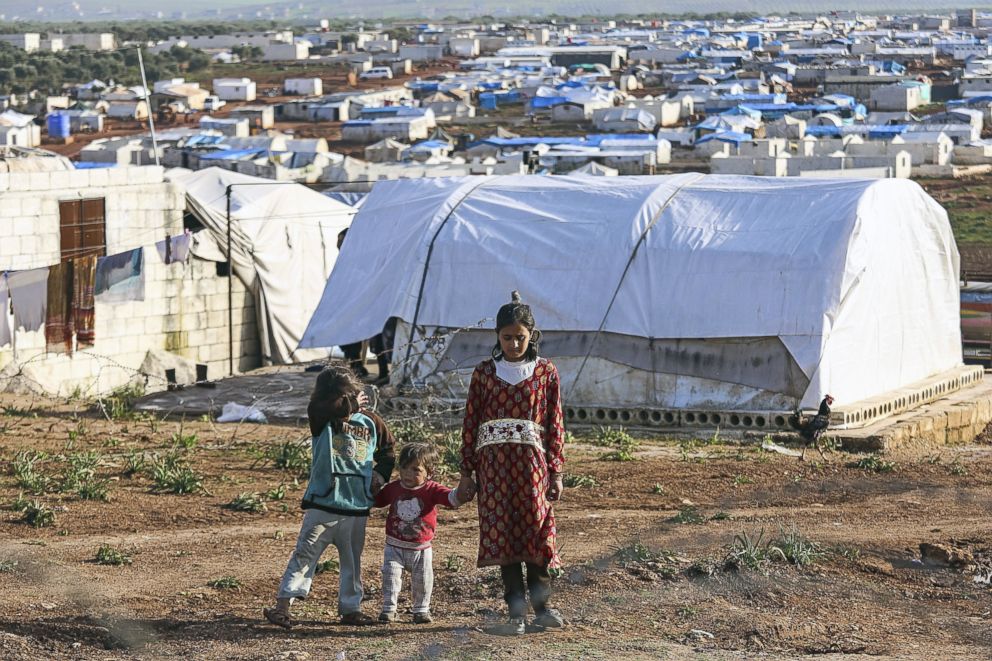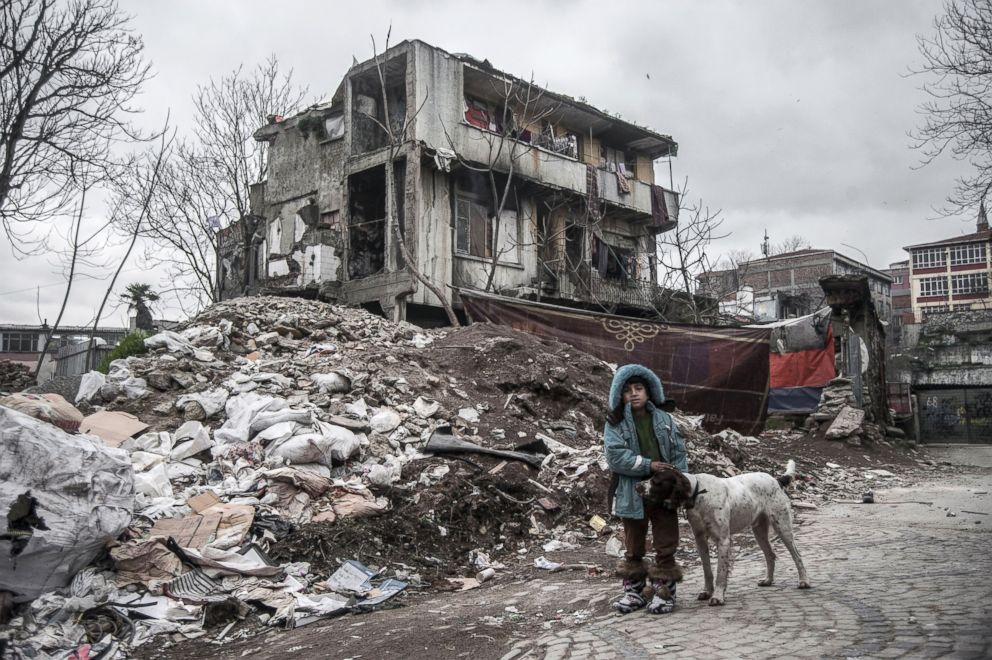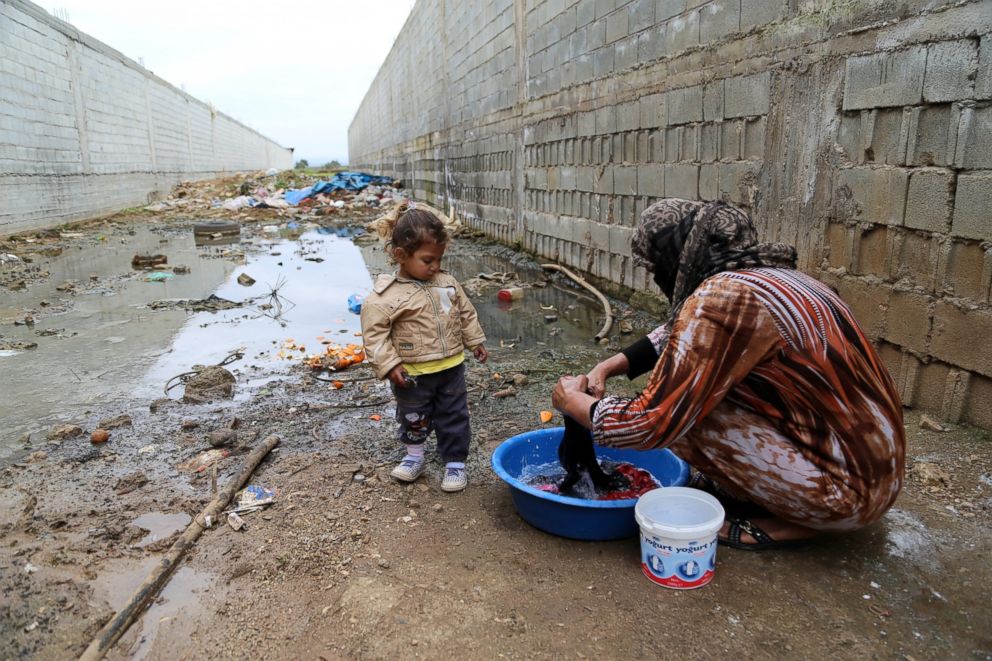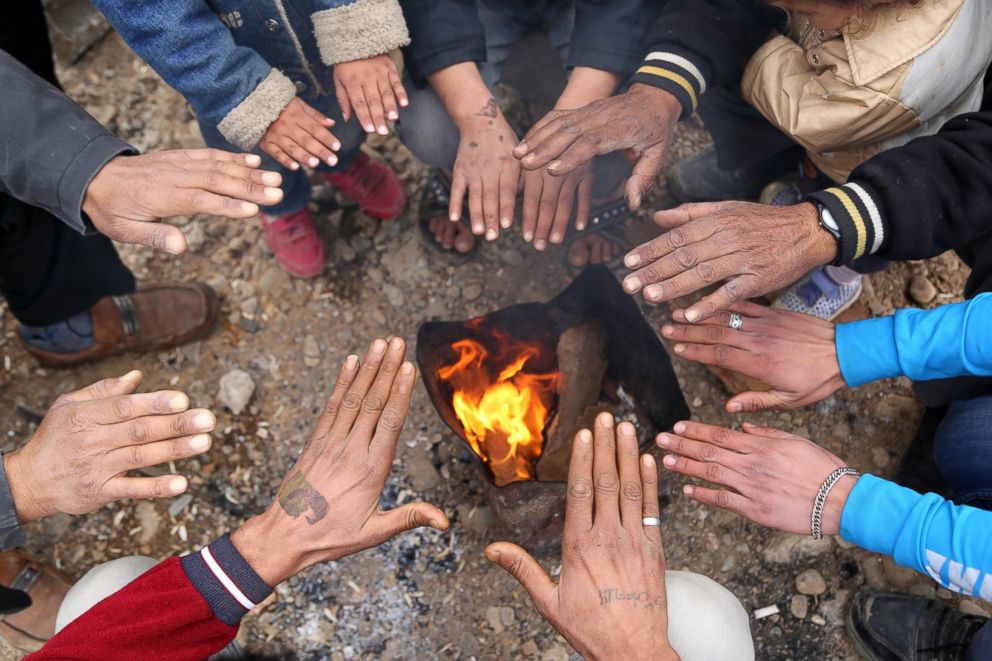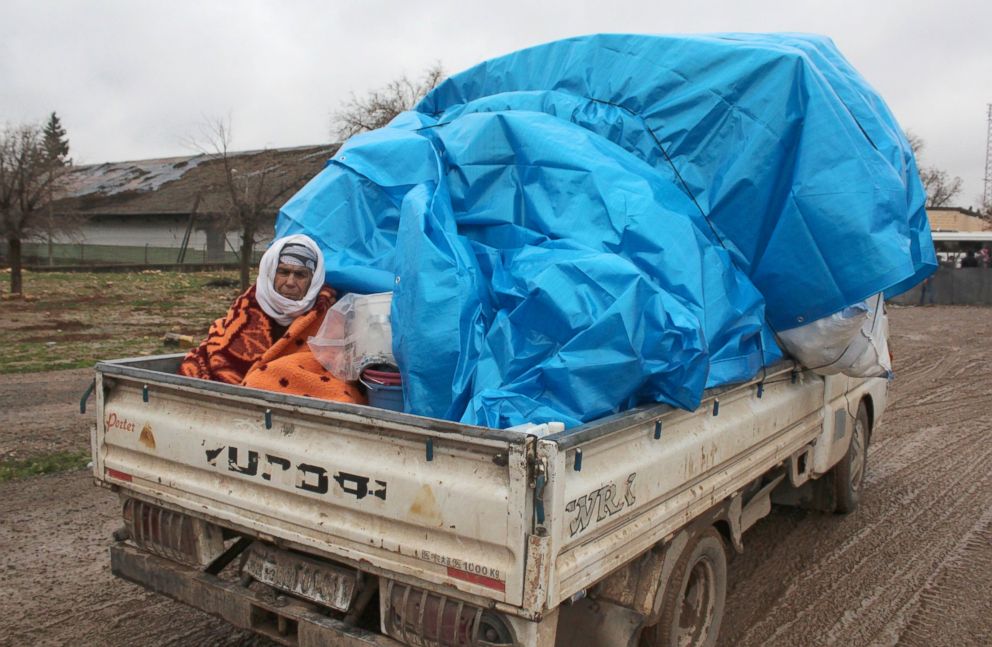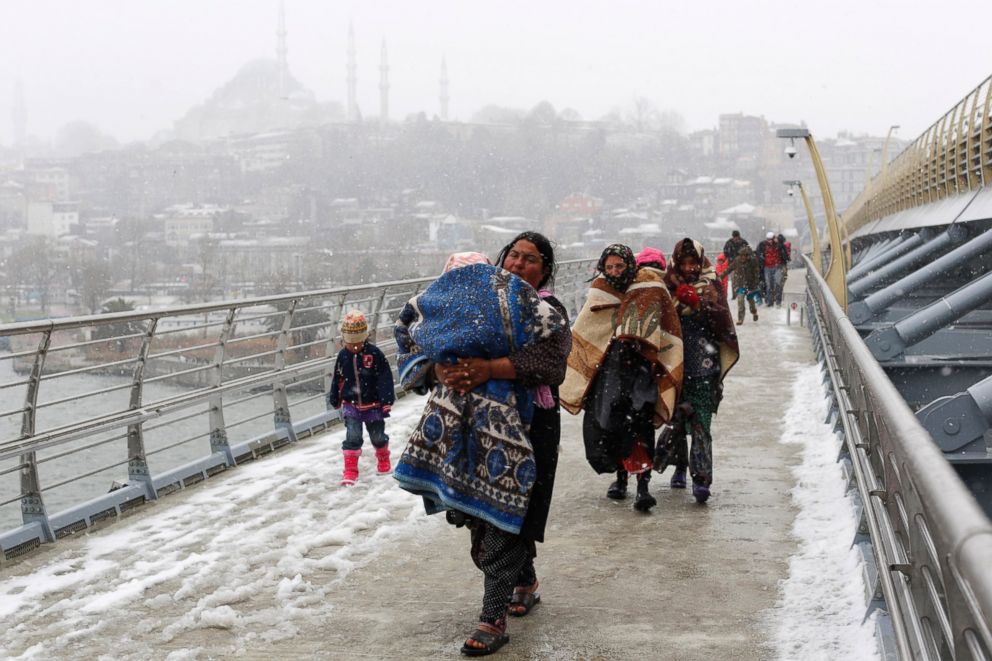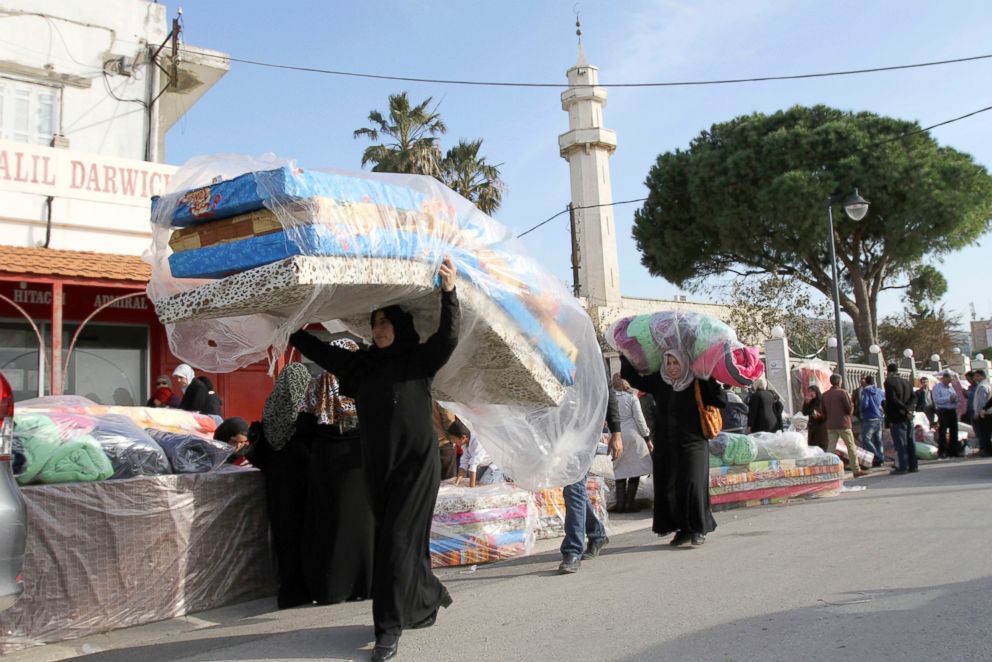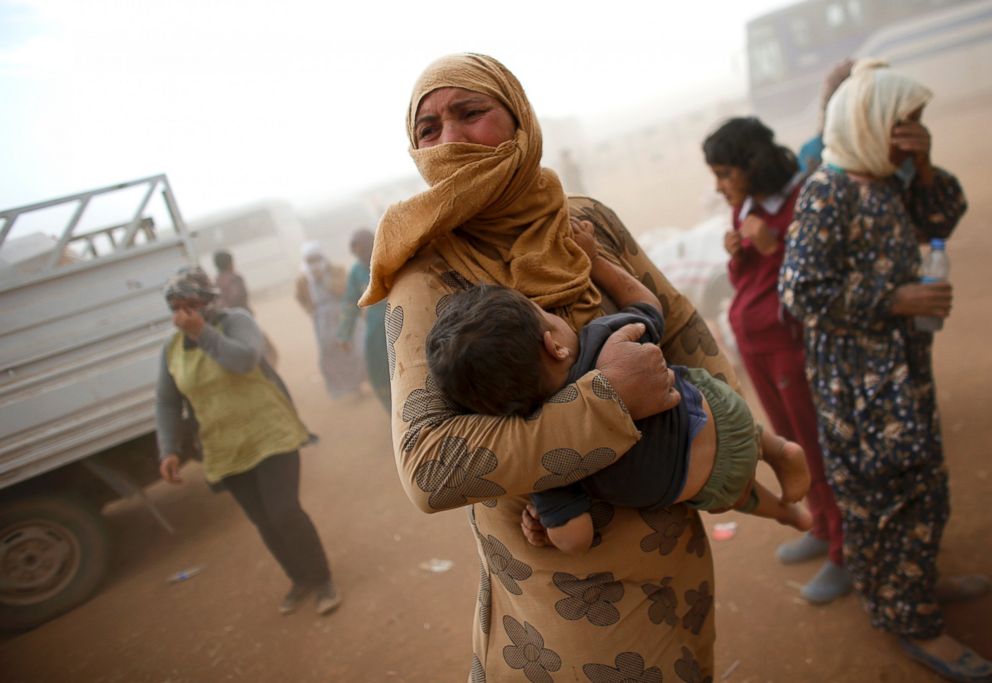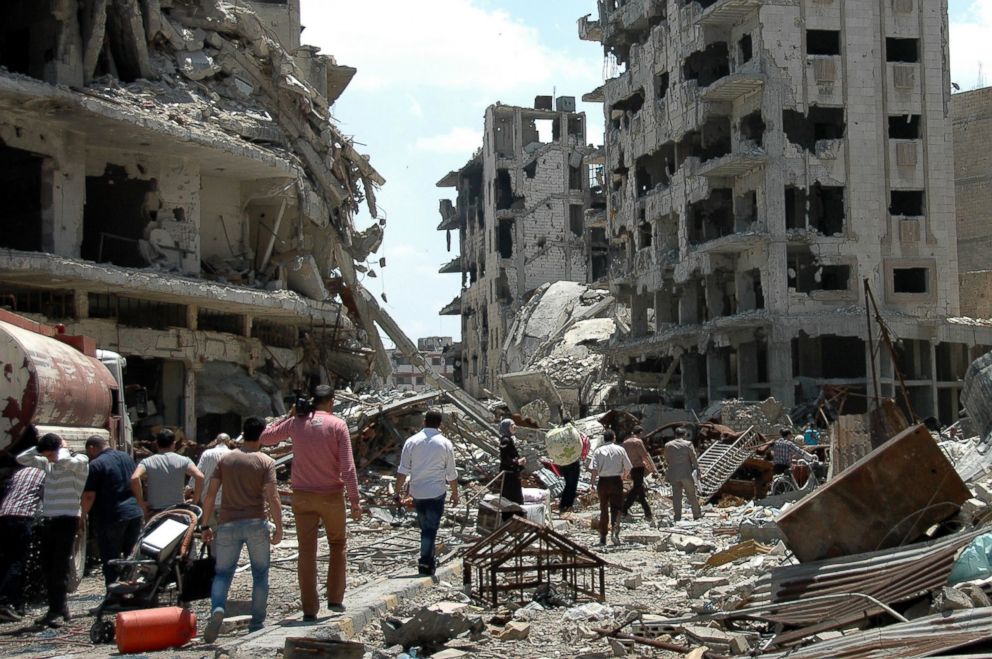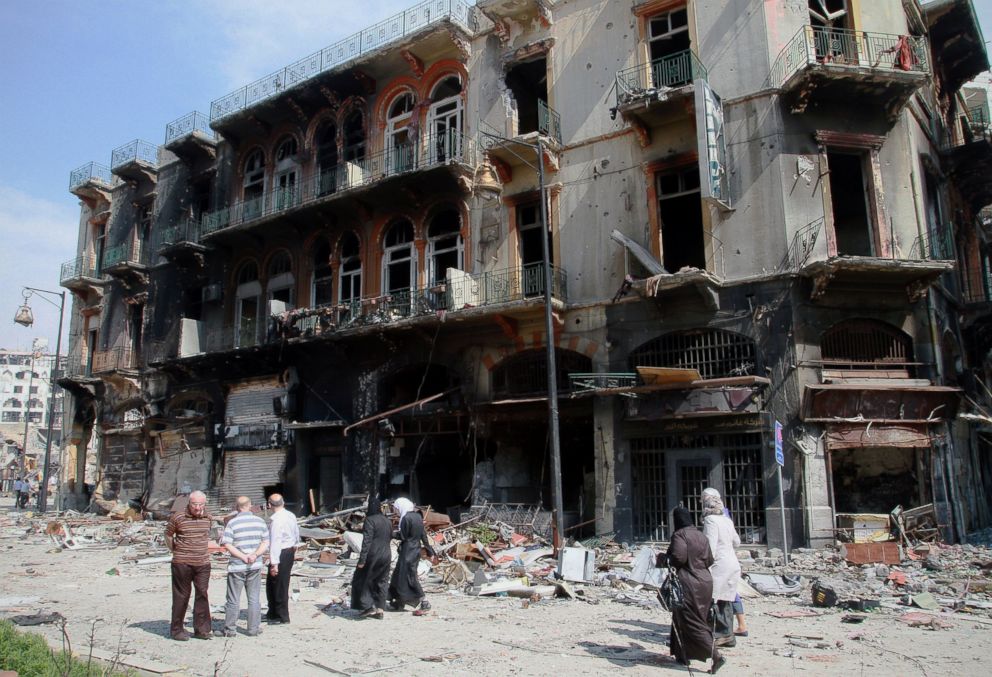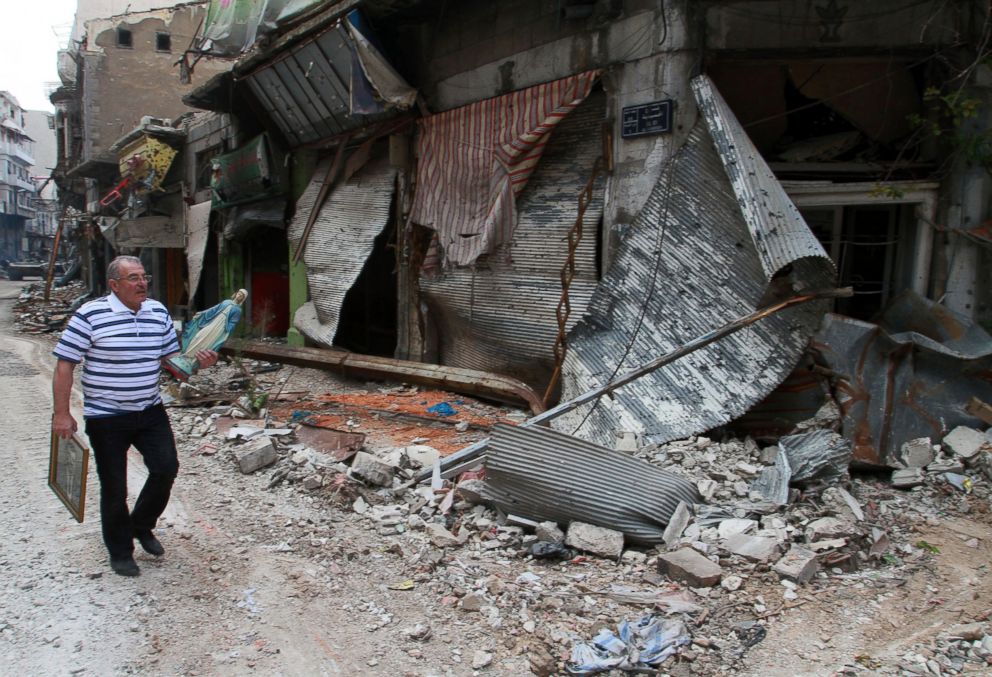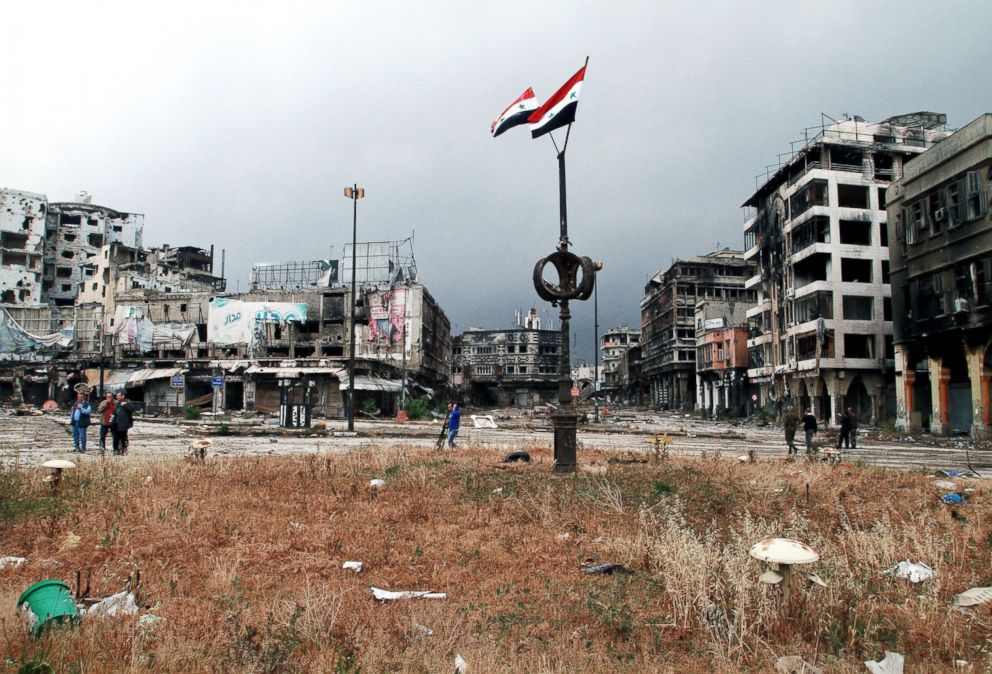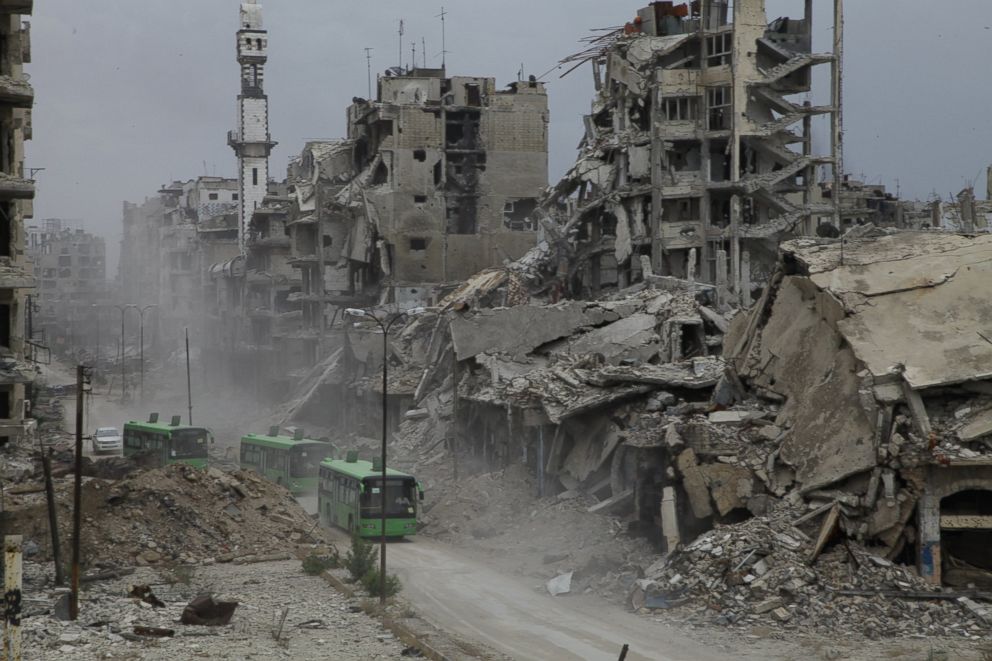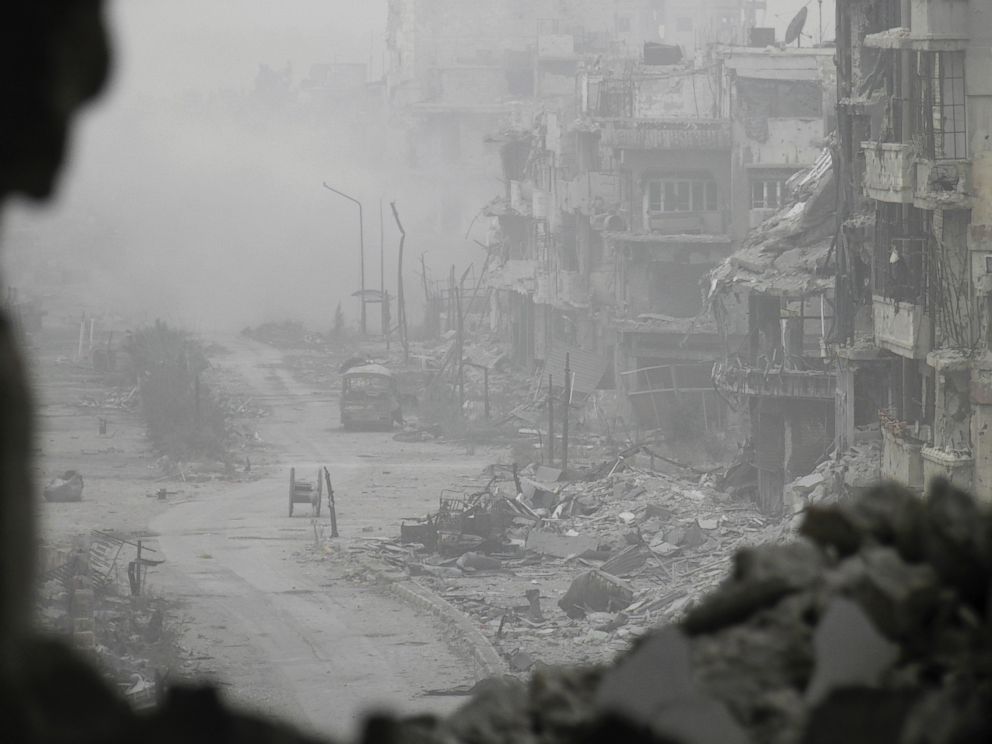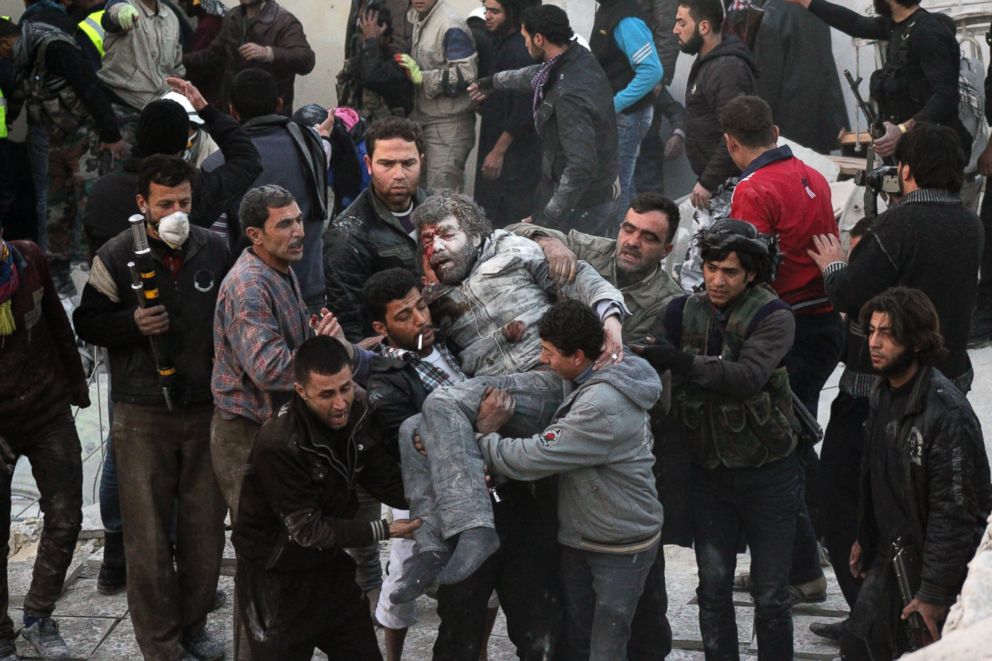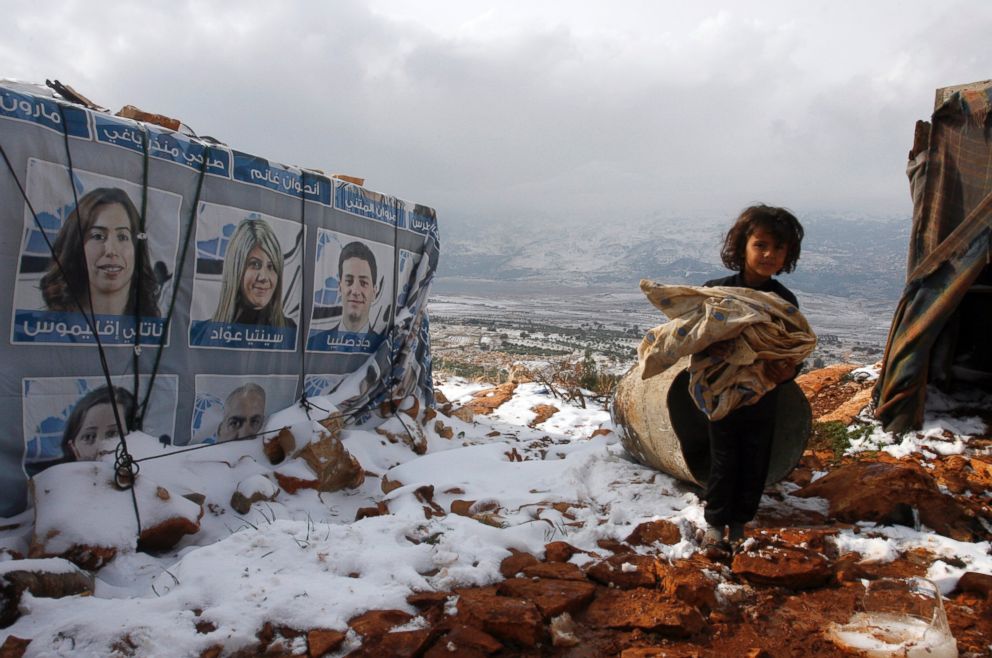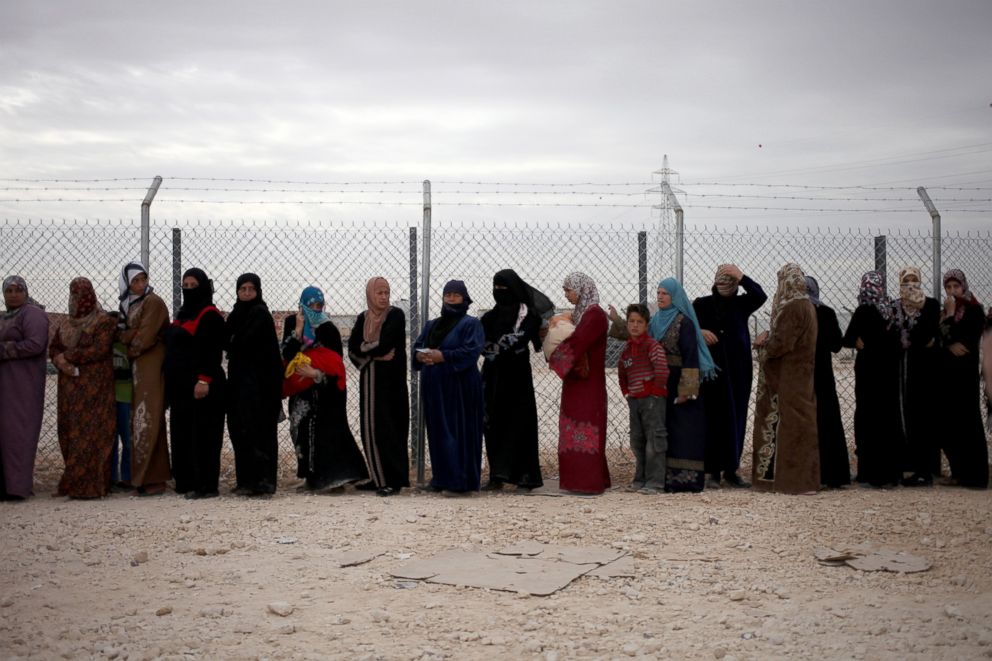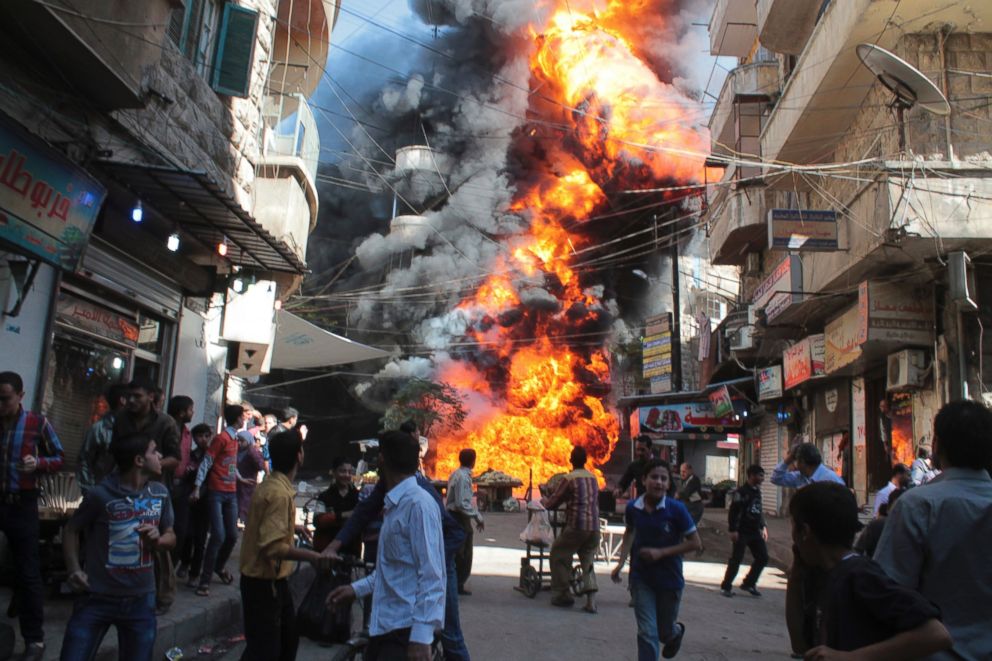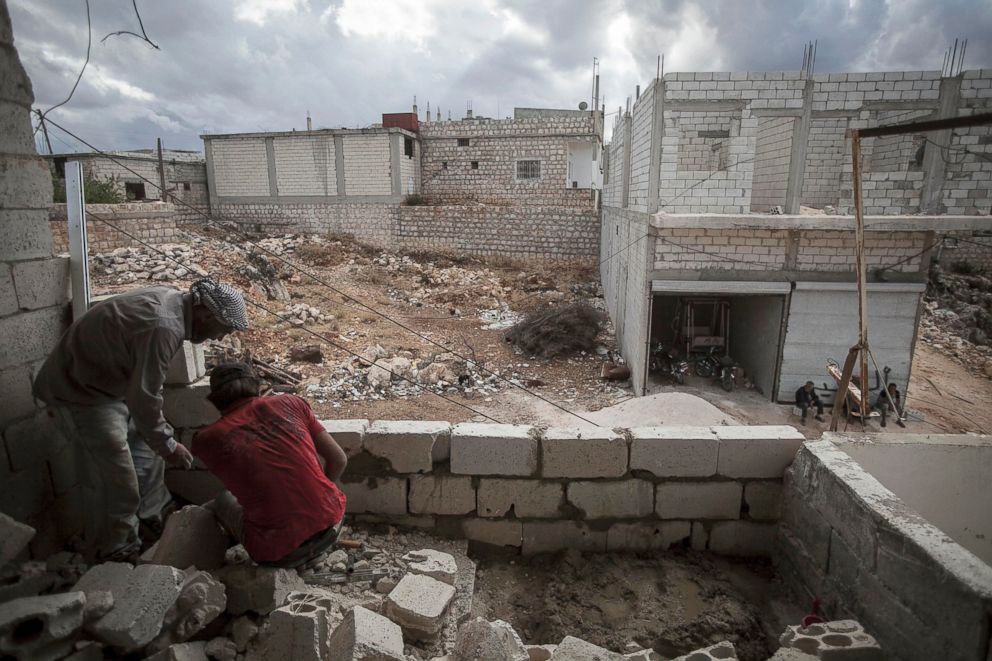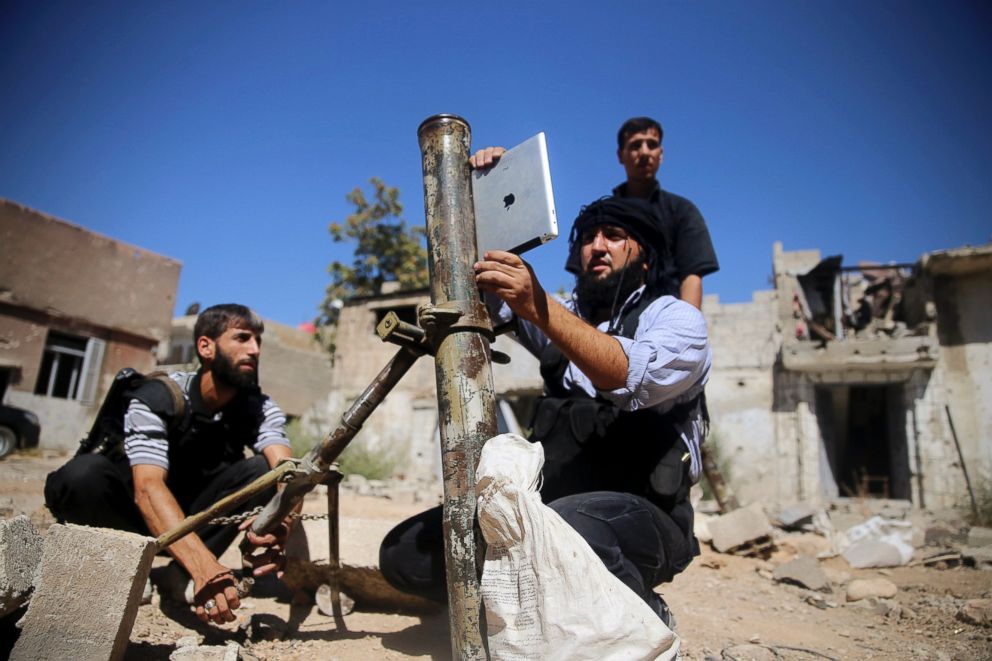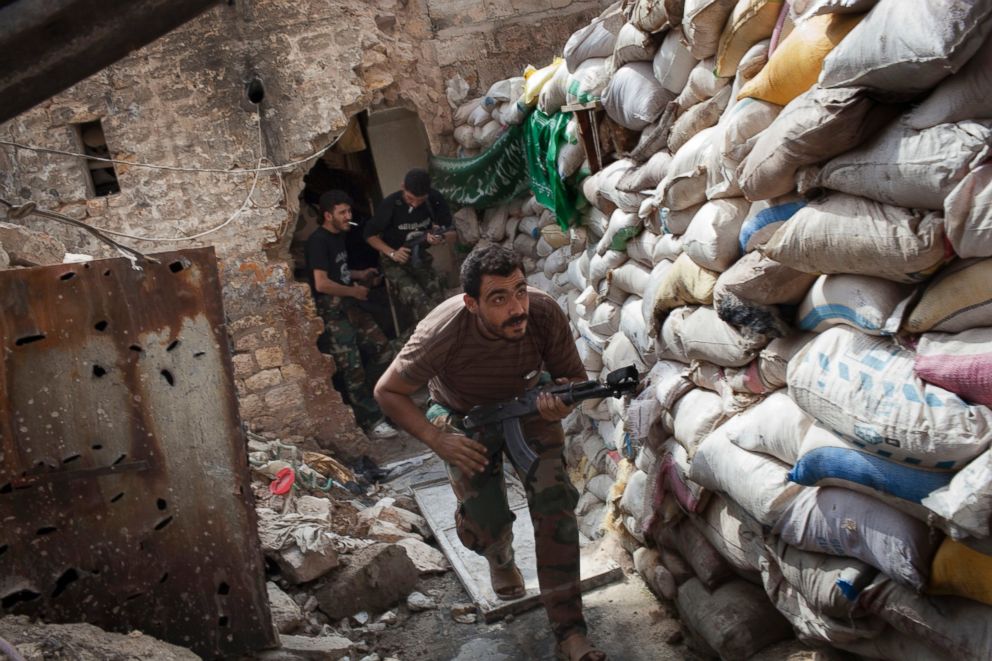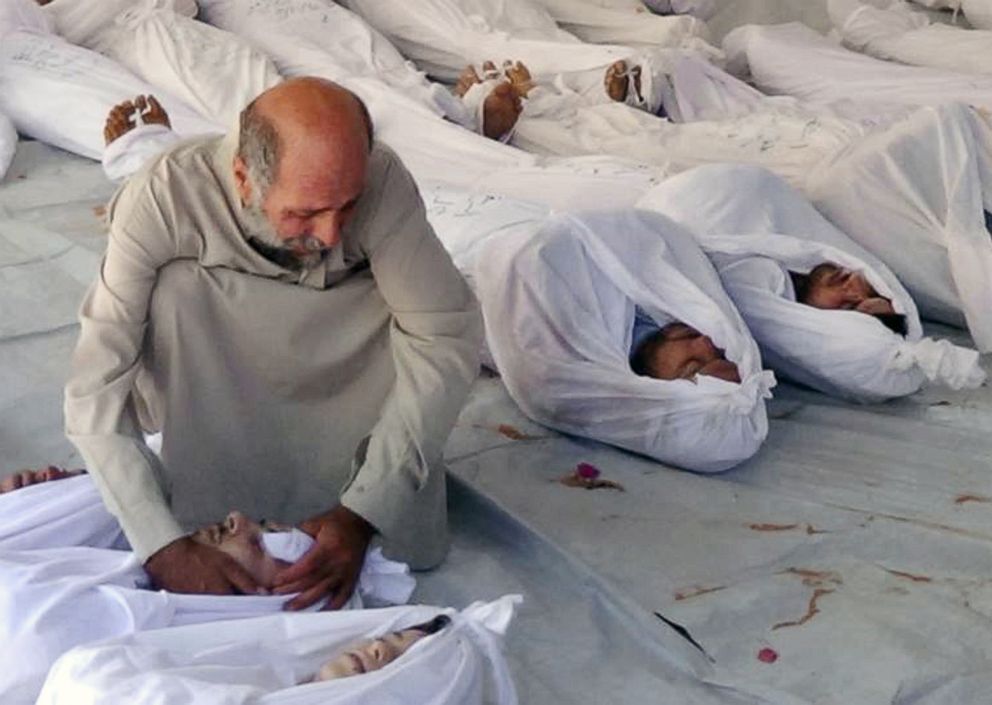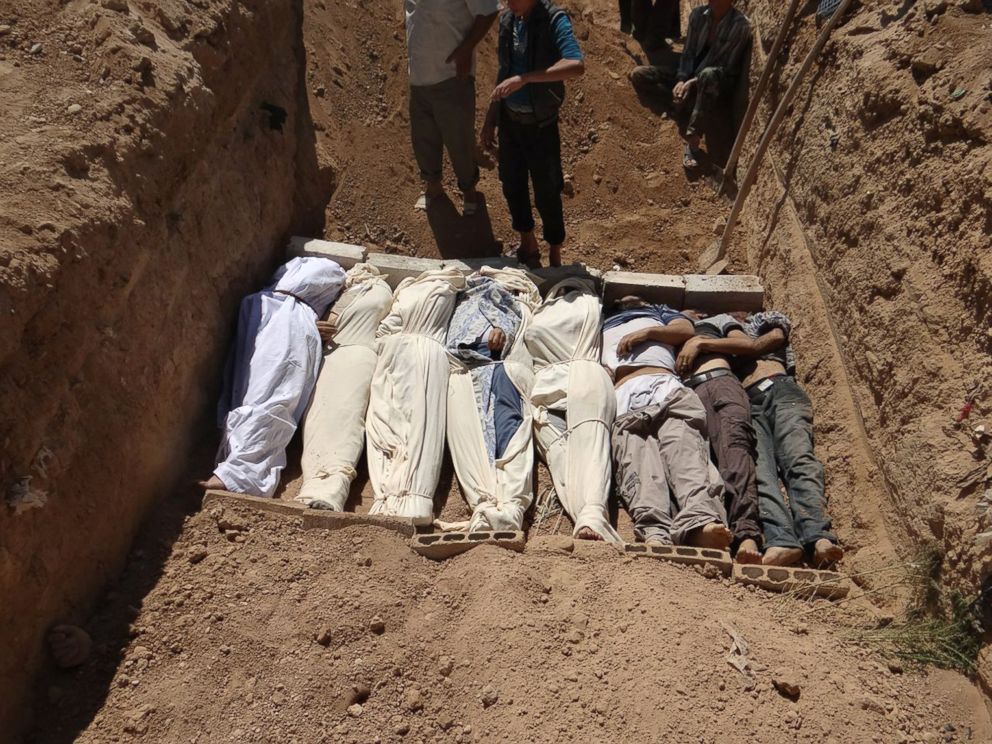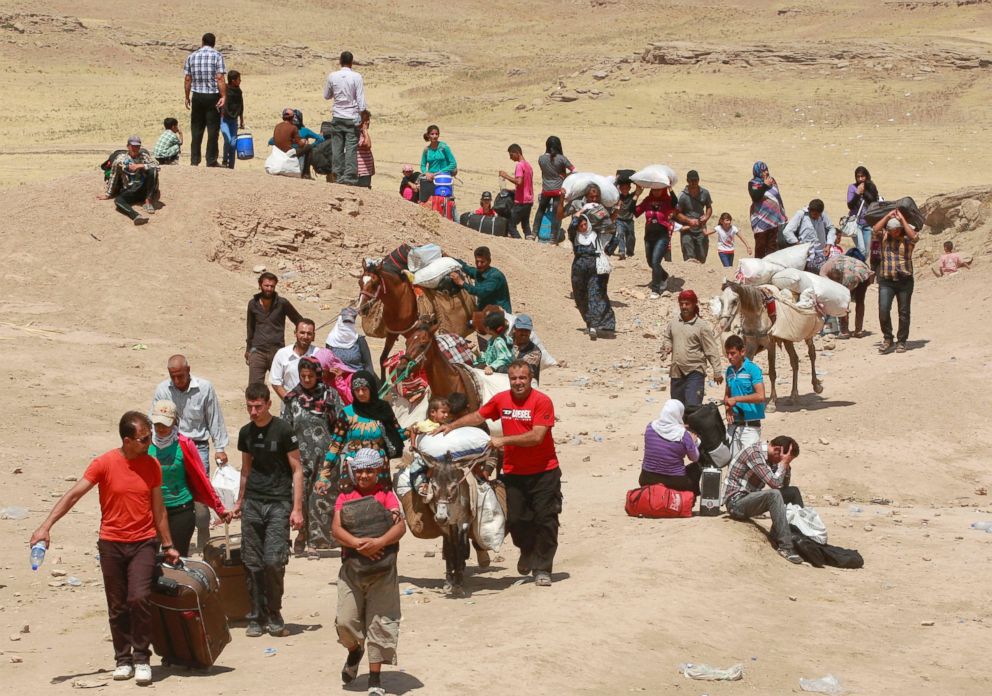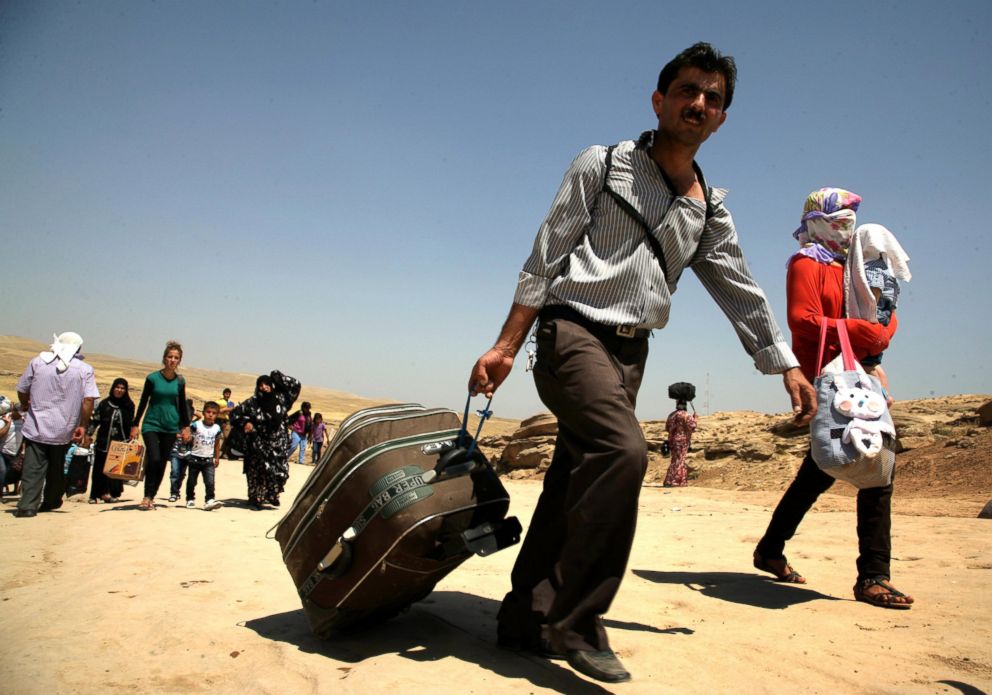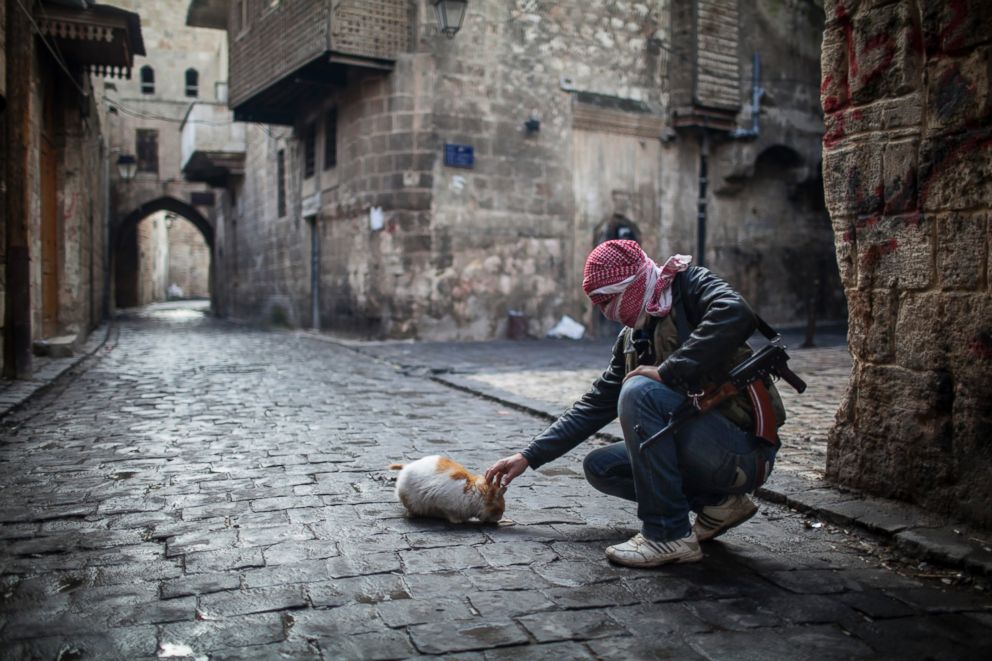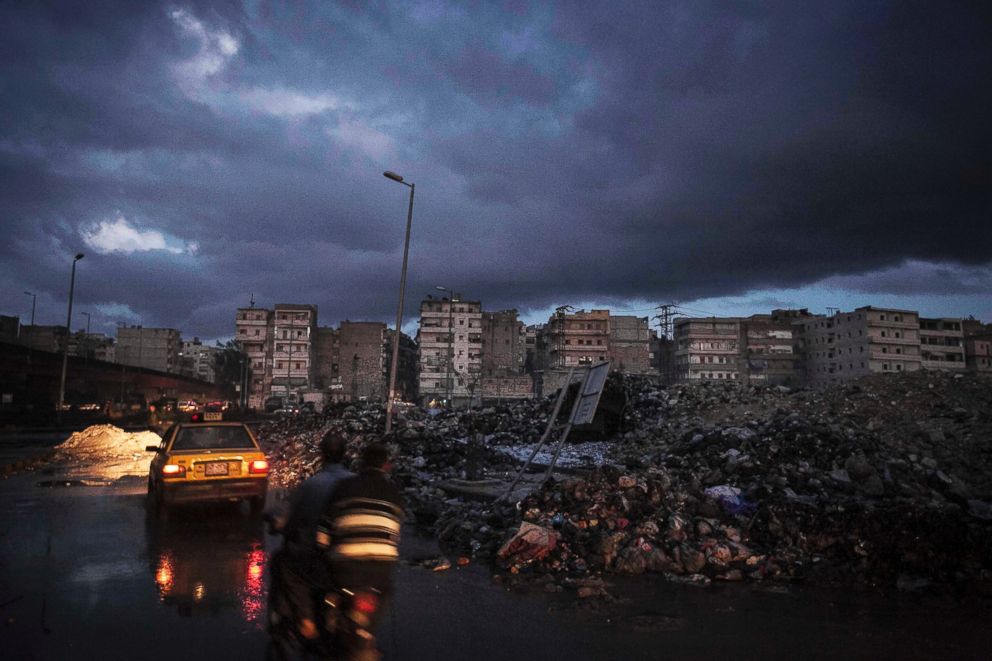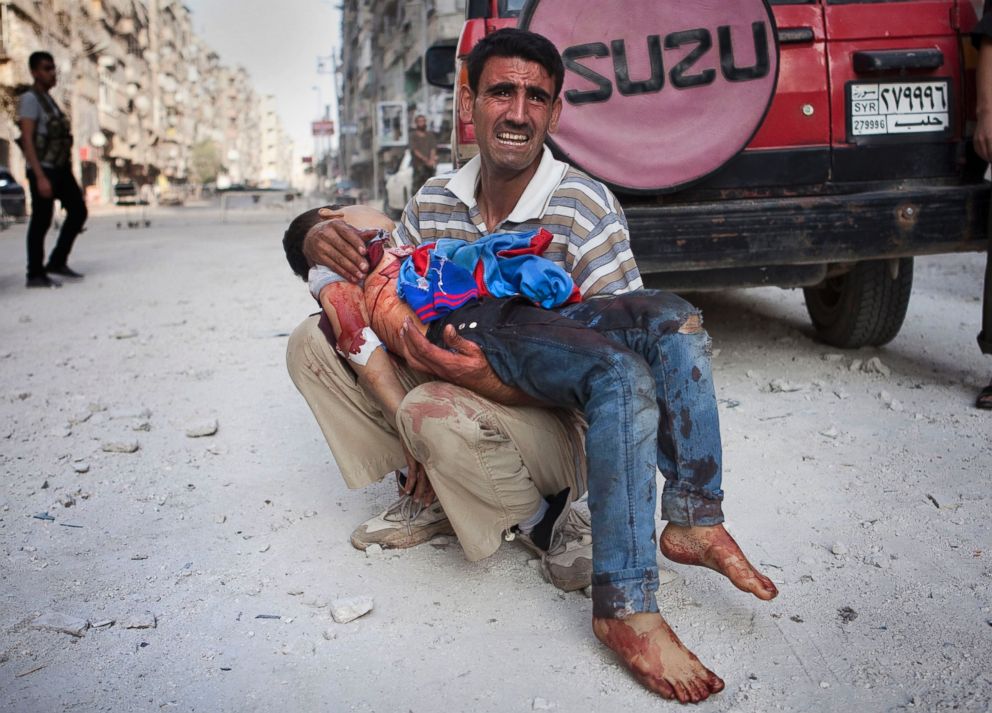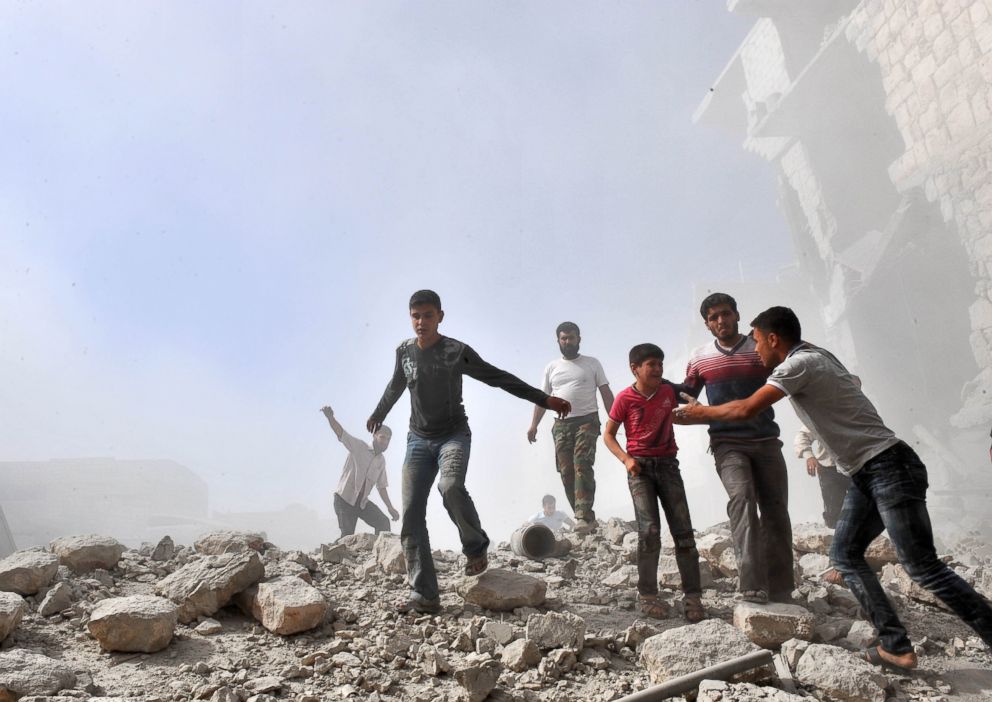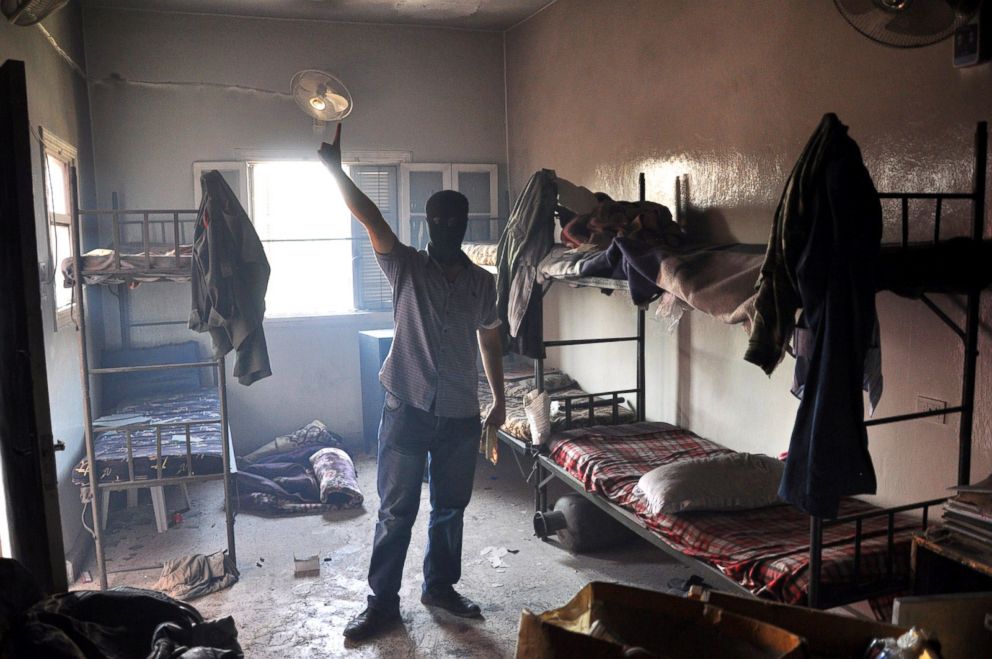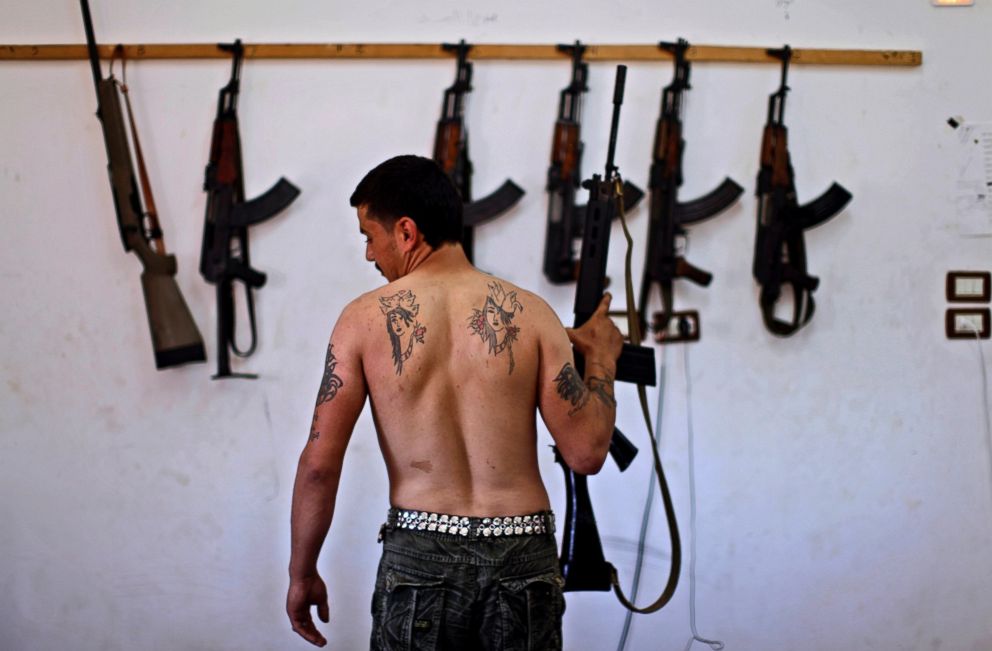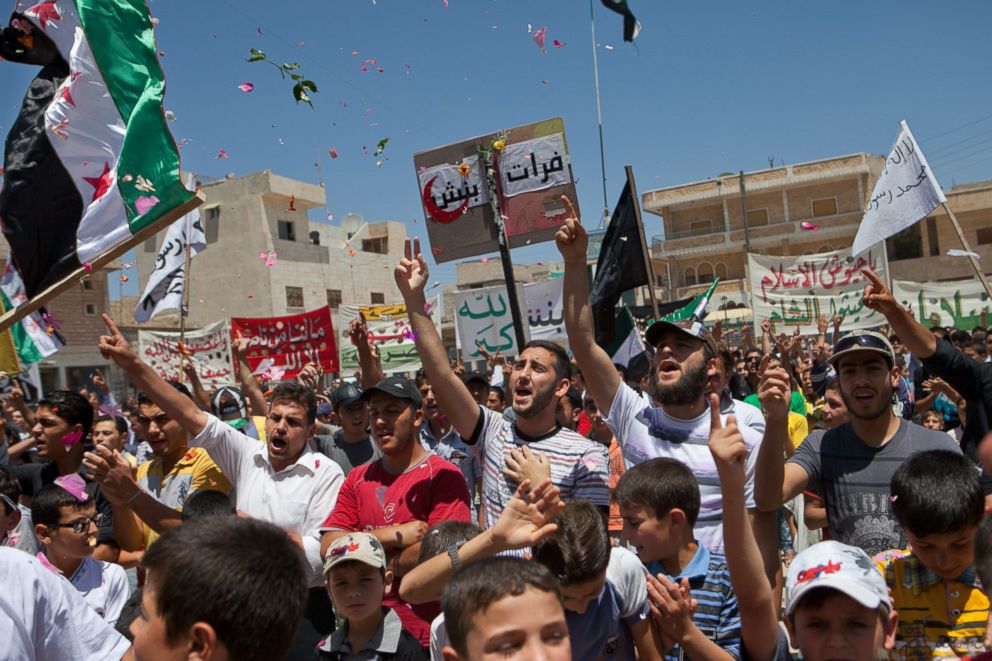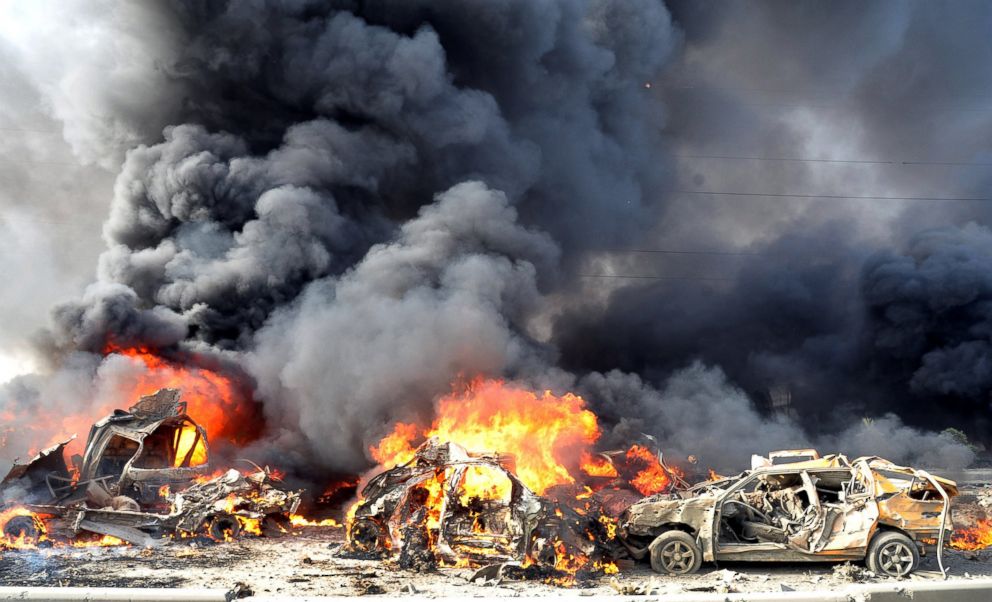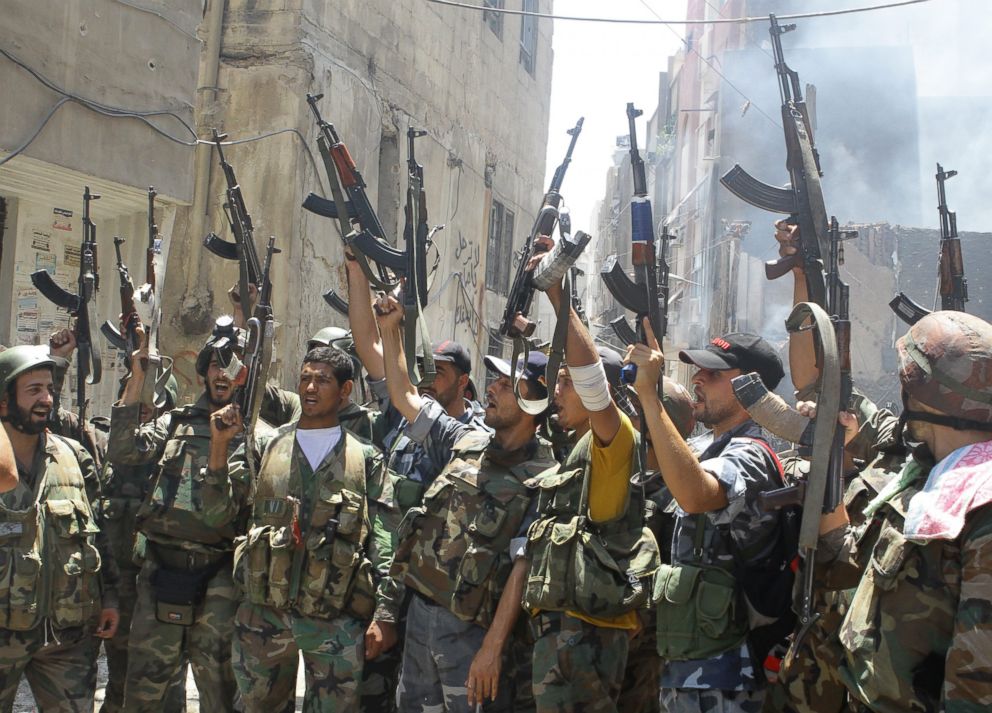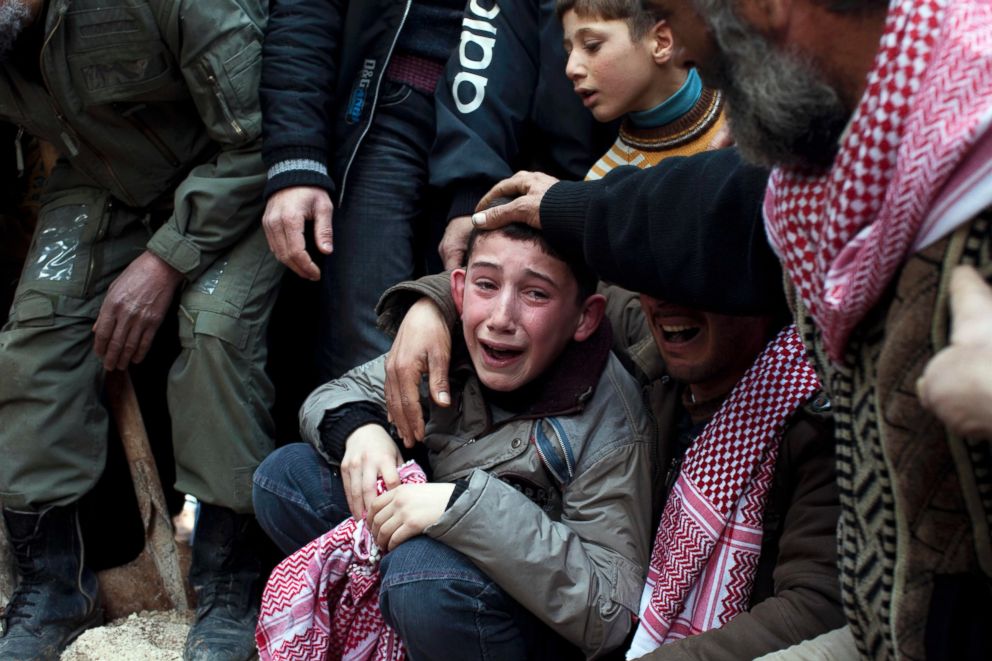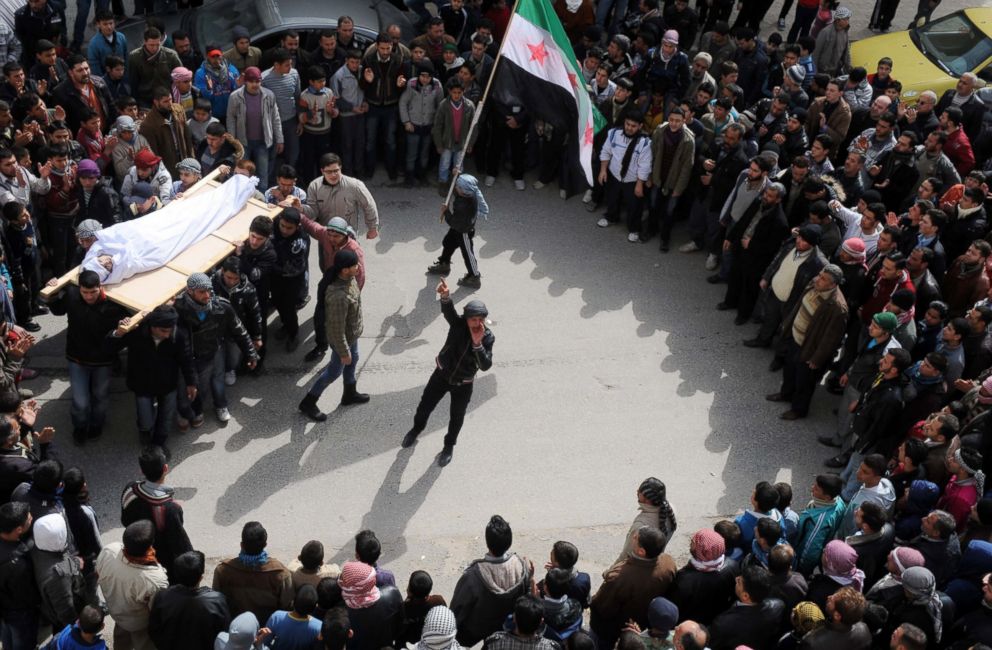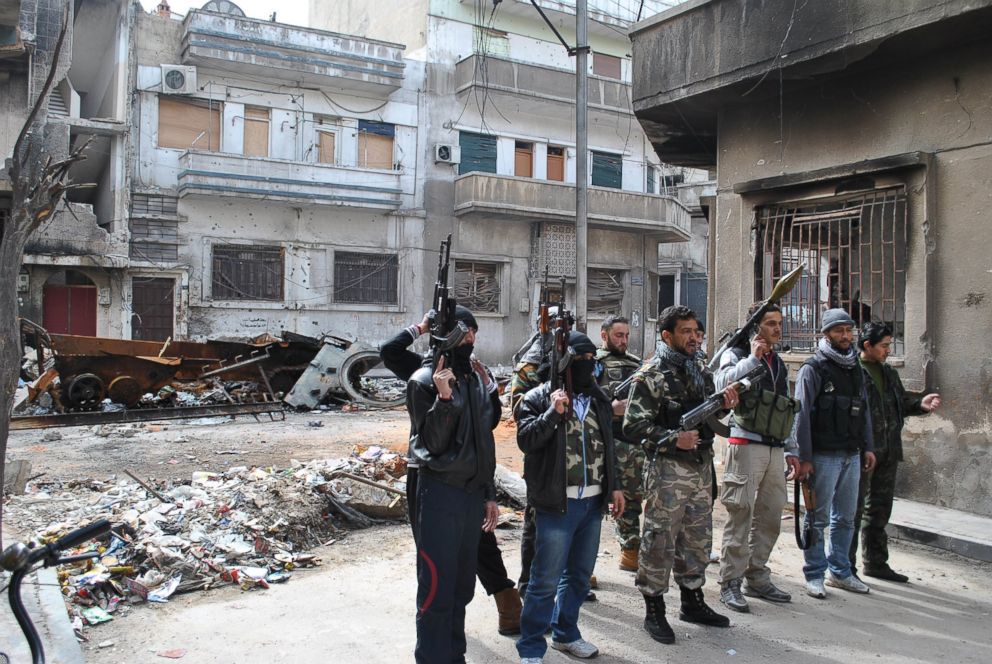Eyewitness says Syrian military anticipated U.S. raid
Syrian officials appeared to evacuate personnel and equipment ahead of strike.
— -- Syrian military officials appeared to anticipate Thursday night's raid on Syria's Shayrat air base, evacuating personnel and moving equipment ahead of the strike, according to an eyewitness.
Dozens of Tomahawk missiles struck the air base near Homs, damaging runways, towers and traffic control buildings, a local resident and human rights activist living near the air base told ABC News via an interpreter.
U.S. officials believe the plane that dropped chemical weapons on civilians in Idlib Province on Tuesday, which according to the Syrian Observatory for Human Rights killed 86 people, took off from the same air base.
The attack lasted approximately 35 minutes and its impact was felt across the city, shaking houses and sending those inside them fleeing from their windows. Firefighters responded shortly after the attack was over.
The Syrian conflict in photos
By Friday, shops were closed, traffic was flowing normally, and regime forces were back in the air base to assess the damage. A Syrian Army spokesman announced on State TV that six people were killed and several more were injured in the attack. Both of the air base's major runways were struck by missiles, and some of its 40 fortified bunkers and some out-of-service planes, parked in a hangar, were damaged as well.
Local residents say the Russian military had used the air base in early 2016 but have since withdrawn their officers, so the base is now mainly operated by Syrian and Iranian military officers. There is also a hotel nearby where Iranian officers have been staying, though it was not clear whether it was damaged.
The city remains on high alert, and there is already a wave of people flowing out of the area surrounding the air base, possibly fearing a followup strike.
The airstrike follows confirmation by the Turkish Health Ministry that autopsies on several victims of Tuesday's attack confirmed the use of the nerve agent sarin in violation of international law and represents an escalation of U.S. involvement in the six-year conflict.
Soon after the strike, President Donald Trump delivered a statement from his Mar-A-Lago retreat, where he was meeting with Chinese president Xi Jinping.
"There can be no dispute that Syria used banned chemical weapons, violated its obligations under the chemical weapons convention and ignored the urging of the UN security council," Trump said Thursday night. "Years of previous attempts at changing Assad's behavior have all failed and failed very dramatically."
Former National Security Adviser and ABC News contributor Richard Clarke said this attack, one of the quickest displays of force by a new president in recent history, is largely "symbolic."
Following a 2013 chemical weapons attack that killed more than 1400 people outside of Damascus, which a U.S. government intelligence assessment concluded likely used a nerve agent, the Obama administration threatened retaliation but ultimately called off planned airstrikes after Assad agreed to turn over the majority of his chemical weapons arsenal to an international watchdog group.
Trump, who was critical of Obama's decision during his presidential campaign, despite the fact that he in 2013 he urged Obama via Twitter not to take military action, has recently attempted to blame Obama's "weakness" for the worsening violence in Syria.
"This attack on one air base seems more symbolic," Clarke said. "I think Secretary of Defense [General] James Mattis gave the president a list of options, this being the smallest. It was a targeted attack not designed to overwhelm the Syrian military ... I think the president was trying to differentiate himself from his predecessor."
Haider Newmani is a freelance Iraqi journalist. ABC News' Randy Kreider, James Meek, Cho Park and Pete Madden contributed to this story.
